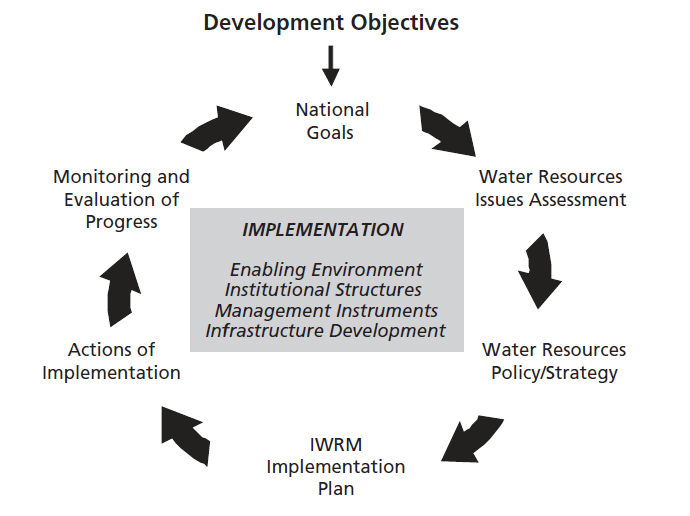Integrated Water Resources Management (IWRM)
Managers, whether in the government or private sectors, have to make difficult decisions on water allocation. More and more they have to apportion diminishing supplies between ever-increasing demands. Drivers such as demographic and climatic changes further increase the stress on water resources. The traditional fragmented approach is no longer viable and a more holistic approach to water management is essential.
This is the rationale for the Integrated Water Resources Management (IWRM) approach that has now been accepted internationally as the way forward for efficient, equitable and sustainable development and management of the world's limited water resources and for coping with conflicting demands.
WRM is an empirical concept which was built up from the on-the-ground experience of practitioners. Although many parts of the concept have been around for several decades - in fact since the first global water conference in Mar del Plata in 1977 - it was not until after Agenda 21 and the World Summit on Sustainable Development in 1992 in Rio that the concept was made the object of extensive discussions as to what it means in practice. The Global Water Partnership's definition of IWRM is widely accepted. It states: 'IWRM is a process which promotes the co-ordinated development and management of water, land and related resources, in order to maximize the resultant economic and social welfare in an equitable manner without compromising the sustainability of vital ecosystems.'
Acknowledgements
- Integrated Water Resources Management (IWRM). UN Water.

